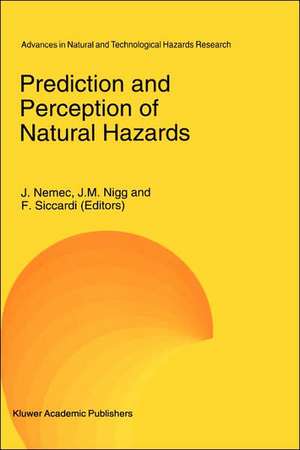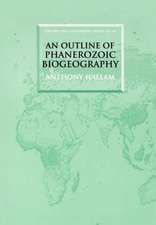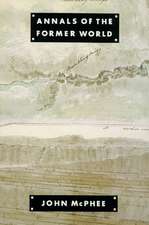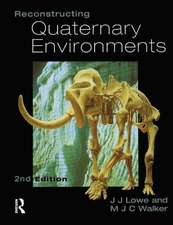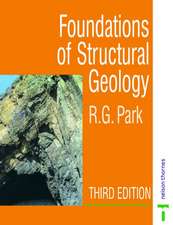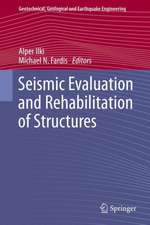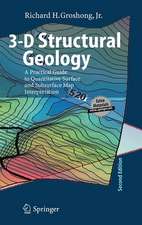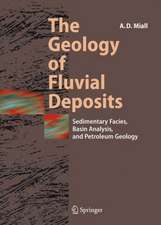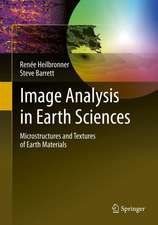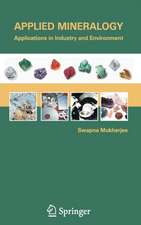Prediction and Perception of Natural Hazards: Advances in Natural and Technological Hazards Research, cartea 2
Editat de J. Nemec, J.M. Nigg, F. Siccardien Limba Engleză Hardback – 30 sep 1993
For each natural hazard included in this text, social scientists have provided research summaries of how public perceptions are related to the actions that are likely to be undertaken when people are confronted with information about the existence of a natural hazard threat.
In this book the reader can find a truly international characterization of both hazard perception and prediction. The American and European contributors provide state-of-the-science overviews of empirically-based research knowledge that expands beyond any national boundaries. This approach has resulted in broader understanding of what is currently known about predicting natural hazard events and predicting how those events, or warnings of them, will be responded to by different types of societies.
| Toate formatele și edițiile | Preț | Express |
|---|---|---|
| Paperback (1) | 637.13 lei 6-8 săpt. | |
| SPRINGER NETHERLANDS – 15 dec 2010 | 637.13 lei 6-8 săpt. | |
| Hardback (1) | 643.48 lei 6-8 săpt. | |
| SPRINGER NETHERLANDS – 30 sep 1993 | 643.48 lei 6-8 săpt. |
Din seria Advances in Natural and Technological Hazards Research
- 18%
 Preț: 977.97 lei
Preț: 977.97 lei - 18%
 Preț: 921.15 lei
Preț: 921.15 lei - 18%
 Preț: 1406.35 lei
Preț: 1406.35 lei - 18%
 Preț: 788.72 lei
Preț: 788.72 lei - 15%
 Preț: 643.84 lei
Preț: 643.84 lei - 18%
 Preț: 955.56 lei
Preț: 955.56 lei - 18%
 Preț: 954.31 lei
Preț: 954.31 lei - 18%
 Preț: 958.56 lei
Preț: 958.56 lei - 18%
 Preț: 937.56 lei
Preț: 937.56 lei - 18%
 Preț: 952.72 lei
Preț: 952.72 lei -
 Preț: 382.18 lei
Preț: 382.18 lei - 15%
 Preț: 647.92 lei
Preț: 647.92 lei - 18%
 Preț: 948.47 lei
Preț: 948.47 lei - 15%
 Preț: 640.06 lei
Preț: 640.06 lei -
 Preț: 407.01 lei
Preț: 407.01 lei - 15%
![Submarine Mass Movements and Their Consequences [With CDROM]](https://i4.books-express.ro/bs/9781402012440/submarine-mass-movements-and-their-consequences-with-cdrom.jpg) Preț: 604.37 lei
Preț: 604.37 lei - 15%
 Preț: 648.05 lei
Preț: 648.05 lei - 18%
 Preț: 1236.99 lei
Preț: 1236.99 lei - 18%
 Preț: 947.35 lei
Preț: 947.35 lei - 18%
 Preț: 947.35 lei
Preț: 947.35 lei - 18%
 Preț: 966.15 lei
Preț: 966.15 lei - 15%
 Preț: 642.51 lei
Preț: 642.51 lei - 18%
 Preț: 951.29 lei
Preț: 951.29 lei - 18%
 Preț: 1255.16 lei
Preț: 1255.16 lei - 15%
 Preț: 642.51 lei
Preț: 642.51 lei - 15%
 Preț: 646.43 lei
Preț: 646.43 lei - 15%
 Preț: 635.96 lei
Preț: 635.96 lei - 18%
 Preț: 1244.08 lei
Preț: 1244.08 lei
Preț: 643.48 lei
Preț vechi: 757.04 lei
-15% Nou
Puncte Express: 965
Preț estimativ în valută:
123.13€ • 128.90$ • 101.88£
123.13€ • 128.90$ • 101.88£
Carte tipărită la comandă
Livrare economică 05-19 aprilie
Preluare comenzi: 021 569.72.76
Specificații
ISBN-13: 9780792323556
ISBN-10: 0792323556
Pagini: 214
Ilustrații: XIV, 214 p.
Dimensiuni: 155 x 235 x 14 mm
Greutate: 0.5 kg
Ediția:1993
Editura: SPRINGER NETHERLANDS
Colecția Springer
Seria Advances in Natural and Technological Hazards Research
Locul publicării:Dordrecht, Netherlands
ISBN-10: 0792323556
Pagini: 214
Ilustrații: XIV, 214 p.
Dimensiuni: 155 x 235 x 14 mm
Greutate: 0.5 kg
Ediția:1993
Editura: SPRINGER NETHERLANDS
Colecția Springer
Seria Advances in Natural and Technological Hazards Research
Locul publicării:Dordrecht, Netherlands
Public țintă
ResearchCuprins
Session 1 The Effect of the Uncertainties in Natural Hazard Prediction on the User Communities.- A Non-Structural Policy for the Mitigation of Flood Effects: The Arno Project.- The Impact of Structural Damage due to Hurricanes and the Prospects for Disaster Reduction.- The Social Dimensions of Warning and the Transition from Folk Wisdom to Laymanship.- Natural Hazard Predictions and Responses in Very Large Cities.- The Effect of the Uncertainties in Natural Hazard Prediction on the User Communities.- Uncertainties in Natural Hazards Prediction and its Effect on User Communities Perception: Soviet Union Case Study.- Session 2 Uncertainties in the Development of Predictions of Large Scale Atmospheric Phenomena: Droughts, Tornadoes and Hurricanes.- Uncertainties in the Development of Predictions of Large Scale Atmospheric Phenomena, Droughts, Tornadoes and Hurricanes.- Empirical Studies of Public Response to Tornado and Hurricane Warnings in the United States.- The Role of Technical Hazard and Forecast Information in Preparedness for and Response to the Hurricane Hazard in the United States.- Session 3 Uncertainties in the Development of Predictions of Floods and Landslides.- Some Remarks on Scientific Activity of Flood Prediction in Italy.- Landslides as Polycausal Phenomena.- Uncertainty in Evaluating Landslide Hazard and Risk.- The River Danube Flood of 27 March 1988.- A Summary of the State of the Art in Flash Flood Warning Systems in the United States.- Spatial Prediction of Landslides.- Session 4 Uncertainties in the Development of Predictions of Earthquakes and Volcanoes.- Earthquake Prediction from the Viewpoint of Earthquake Engineering.- Communicating Public Earthquake Risk Information.- Uncertainties in the Estimate of Strong Ground Motion in the Surroundings ofa Large Earthquake.- Risk Area Residents’ Changing Perceptions of Volcano Hazard at Mt. St. Helens.- Uncertainties in the Development of Predictions of Earthquakes.- Session 5 The Use of Scientific Information by the Media.- The Different Worlds of Science and Mass Communication: Implications for Information Flow from the Former to the Latter.- Effective Communication between the Scientific Community and the Media.- Ideas for a Global Model of Communication and IDNDR Potential.- Quantity of Reporting about Hazards: The Case of Naturally Occurring Radon.- Earthquake Prediction and Information to the Public — A Mexican Perspective.
